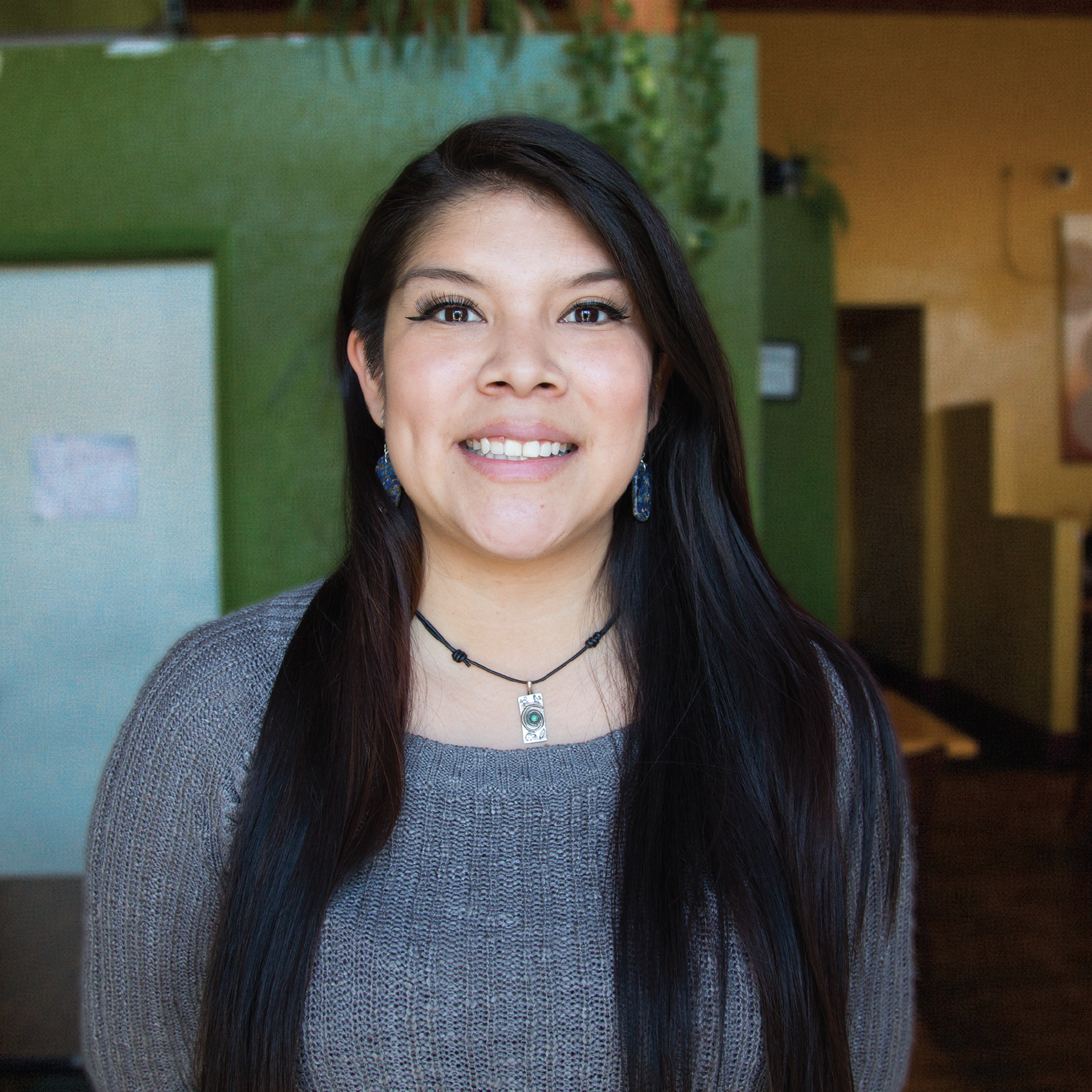Sara Twiss


Sara Twiss
MCRP 2019
When I looked online at UNM, I started to read about the Indigenous Design and Planning Institute (iDPi) which was a semi-new program. When I read more into it, I just thought is what I want to do. I want to do community-based practices and on the groundwork with southwest tribes.
Sara Twiss, Nathan Jopeck, and Leiloni Begaye started off friends who got coffee together and shared the occasional meal. Now, they are co-founders of Tribal Entities Connect, an organization with the goal of reconnecting tribal organizations throughout the southwest to coordinate and fully utilize various initiatives, projects, and current advocacy work.
“Traditionally, a lot of indigenous tribes did work together, and we did exchange ideas and practices and that’s how we keep ourselves going,” said Twiss, a recent alumna from UNM’s School of Architecture and Planning.
When Twiss, Jopeck, and Begaye began to explore the idea of what they wanted to be beyond their time at UNM as indigenous peoples. For Twiss, it was doing work with community members, and reconnecting with indigenous populations in the southwest. Tribal Entities Connect was one way of implementing her ideas and projects into practice.
Twiss graduated in fall 2019 with a Master of Community and Regional Planning degree, with a focus on Indigenous Planning.
“When I looked online at UNM, I started to read about the Indigenous Design and Planning Institute (iD+Pi) which was a semi-new program. When I read more into it, I just thought that is what I want to do. I want to do community-based practices and on the groundwork with southwest tribes.”
Twiss is from the Walker River Paiute tribe, in northern Nevada. She considers herself and the folks around her to be part of the indigenous southwest community. With that connection, Twiss believes that whatever she got out of the program, she could eventually take it back home and do that same type of work.
Aside from her work with Tribal Entities Connect, Twiss is the project coordinator of Indigenous Women Rize, a project that stemmed from her final work at UNM as a student.
“I came up with the idea for the project in Dr. Harjo’s class, Indigenous feminist planning praxis,” said Twiss. Eventually, the project went from an in-class presentation to a professional project before being a part of a curriculum development plan and workshop series supported by Tribal Entities Connect.
Indigenous Women Rize focuses on self-empowerment, indigenous identity seeking, and self-defense mechanisms for young indigenous girls age 17 and up. Twiss focuses on this age group in part due to her own experiences and observations of the type of decisions that native women are forced to make at that age.
“It’s a really critical time in a young girl’s life. They have to make such big decisions, such as going into higher education or determining if they want to actually pursue a career or go into a workplace. A lot of times, native women would have to leave their home communities, just like I did, just in order to have those opportunities. There’s a lot of tough decision making, and the weight of the world is on their shoulders, but they’re still young. They are still just girls.”
Twiss aims to help create and develop community-based planning actions and practices that empower these women to make tough choices and protect themselves and their sisters.

